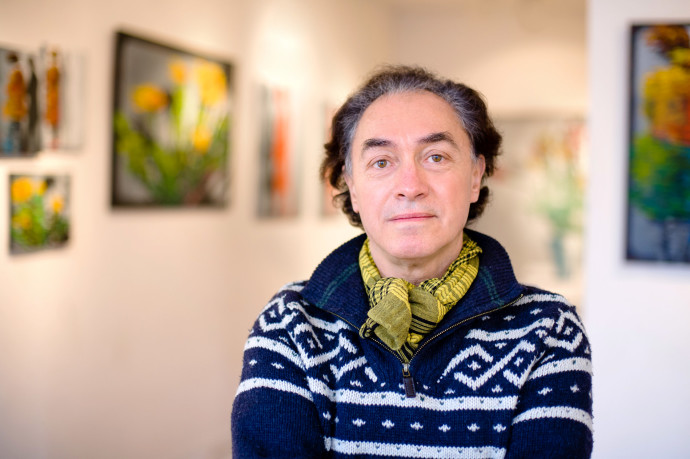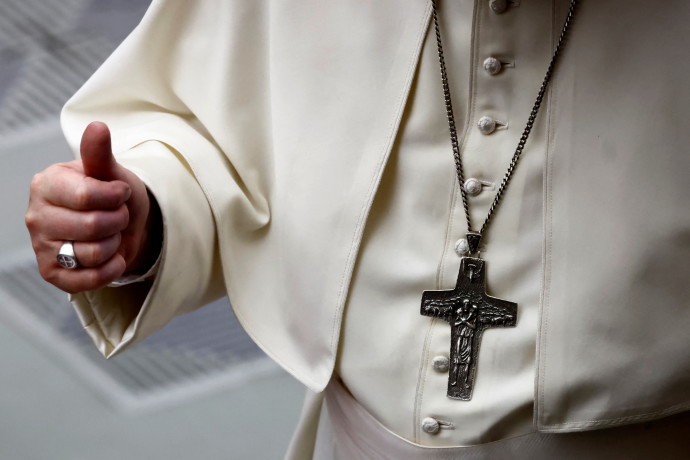The Vatican is the head of the world’s largest and most centralized religion and a sovereign state with diplomatic representation across the globe.
As a religious authority, the Vatican will often challenge secular governments in areas such as security, human rights and international economics, but also pays close attention to international religious freedom and debt relief, along with conflicts of war.
The Holy See “is the episcopal jurisdiction of the Catholic Church, forming the central government of the Church,” according to the United States Conference of Catholic Bishops (USCCB). “As such, diplomatically and in other spheres, the Holy See acts and speaks for the whole Roman Catholic Church. It is also recognized by other subjects of international law as a sovereign entity, headed by the Pope, with which diplomatic relations can be maintained.”
Through the Section for Relations with States, the Secretariat of State directs all of the Holy See’s diplomatic activities. Except for North Korea and the People’s Republic of China, the Holy See recognizes all of the members of the United Nations. The Holy See also recognizes Taiwan and the State of Palestine, neither of which are members of the United Nations.
Currently, the Holy See has diplomatic relationships with 183 sovereign states. Based in Rome, there are 89 embassies to the Holy See, affording it international influence.
While the Holy See is not a member of the United Nations, it has been a permanent observer state at the UN since April of 1964. Since then, the Holy See has held a standing invitation to attend all UN General Assembly, UN Economic and Social Council and UN Security Council sessions.
To better understand the role of the Vatican in world events, The Jerusalem Post spoke to Dr. Victor Gaetan, who served as an international correspondent for both the National Catholic Register and Catholic News Service. He’s written from the Middle East, Asia, Latin America and Europe, contributing to America Magazine and Foreign Affairs magazine. In addition, Gaetan has closely worked with the papal diplomatic corps, which he said has provided him with rare insight into the Vatican Secret Archives. He’s the author of “God’s Diplomats: Pope Francis, Vatican Diplomacy, and America’s Armageddon.”

Where does Pope Francis stand on the Iranian nuclear deal?
“Pope Francis and all postwar popes have supported denuclearization,” Gaetan said. “Francis supported the nuclear deal between the US and Iran under the Obama administration. The Vatican always supports dialogue, so undoubtedly, it supports negotiations between Iran and world leaders to control nuclear arms production.”
Who are the people behind the scenes moving Pope Francis’ diplomatic agenda forward?
“Few are well known, and that is how the Vatican likes it,” according to Gaetan. “For every hotspot, there are specialists who have lived, sometimes for decades, in that country and its special issues, culture relationships.”
He recalled how when the Vatican announced it signed an agreement with Beijing in September 2018 regarding the process for selecting bishops, Francis thanked three people: Secretary of State Parolin, Archbishop Claudio Celli and Monsignor Gianfranco Rota Graziosi.
“All three had worked on the problem for over 10 years,” Gaetan said.
“To highlight the tenacity and dedication of unknown Vatican diplomats, I will single out the nuncio, Vatican-ese for ambassador to Syria, Archbishop Mario Zenari," he continued. "He has been in post since 2008 despite war and deprivation. He recently described how the people in Syria have fallen 'into obscurity.' To honor his dedication, Francis made him a cardinal, a very unusual promotion.”
According to Gaetan, Zenari has described his calling in a way that he thinks typifies Vatican diplomats: “At times, I feel like I am dressed like a simple soldier in military fatigues uniform…using the weapons of charity and truth,” Gaetan said, quoting the ambassador. “I feel that I take orders from the Commander in Chief, Jesus Christ, and his lieutenant, the pope.”

How do you think Catholics should balance being politically and biblically correct?
“There are moral precepts that apply to both individual behavior and what the Church considers to be the right behavior for countries,” he said. “People should not engage in revenge. For example, It’s a sin. Nor should people indulge in envy, especially of a neighbor. Rather, one must love one’s neighbor—that’s perhaps the most challenging rule in the Bible, which also applies to your neighborhood and your activities in any political or policy contest.”
He added that “the Church tries to remain impartial in the face of conflict, and with regard to politics, tries not to take a partisan side. However, laypeople are encouraged to engage in politics, to be involved, and to follow her or his conscience, meaning that moral positions matter and should guide political behavior.
“Just as the Catholic Church is a fountain of spiritual wisdom and direction on matters of the divine,” he continued, “it benefits from thousands of years of experience in worldly things, including international relations.”
He noted that historically the Catholic Church has often played a role as mediator between countries at odds with each other, and the principles used in those negotiations can be applied by anyone.
“For example, when settling a dispute, avoid creating winners versus losers by finding solutions that balance gains,” Gaetan said. “And pursue dialogue with everyone, even with people you assume you won’t agree with or think you have little in common with.”
Any final thoughts?
“When I look back on Pope Francis’ pontificate, I think a clear early moment signaling his approach to diplomacy came in May 2014. He invited the then Israeli President Simon Peres and Palestinian President Mahmoud Abbas to the Vatican together with Ecumenical Patriarch Bartholomew, leader of the Orthodox Church of Constantinople.”
Gaetan said the event epitomized three themes.
First, the pope believes personal encounter is the key to unlocking geo-strategic problems.
Two, from dialogue a wider understanding can grow.
“Part of the reason why encounter can lead to solutions is that we are all human beings made in God’s image: We share more than divides us—that’s the second fundamental belief that Francis is operationalizing,” Gaetan said.
Third, religious leaders should collaborate to bring moral authority into the picture more often.
“The alternative is hiving off religion into separate, privatized space,” Gaetan concluded.
